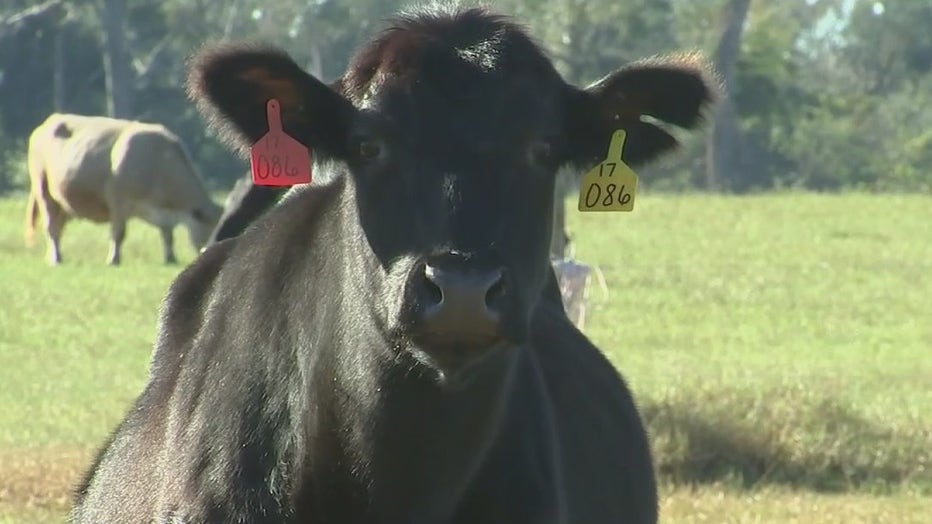Florida researcher hopes to clear the air about cow burps
MARIANNA, Fla. - Nicolas DiLorenzo is a University of Florida researcher with an unusual specialty.
"I’ve been introduced as the guy that studies farts," he admitted. "My first correction quickly is, I work with cows, and then it's belches, not farts."
Yes, cow belches. And turns out, cows do a lot of belching.
"They are not necessarily belching the way a human would do in a very loud, obnoxious way, but they certainly do it a lot more than humans would," explained DiLorenzo.
All that cow burping comes with environmental consequences. During the digestion process, cows can produce over a half a pound of methane every day.
"It’s a fairly large volume of gas and that’s where the problem lies," he continued.
Methane is a harmful greenhouse gas, 25 times more potent than carbon dioxide. It accounts for about 15% of total global greenhouse gases.
"Globally it’s a large amount of methane we are emitting through cattle, and that’s why we are so concentrated on research efforts to mitigate it."

At a U.F. agriculture research facility in Marianna, DiLorenzo is reducing the amount of methane cows release through small changes in their diet. He's replacing a common supplement in their food with nitrates that interrupt the production of methane.
The USDA-funded research has led to an 11% reduction in methane emission.
"At this point we are happy with 11%, but we know it’s not where we want to stop," he noted.
The reduction comes without a loss in production or increased costs. Both are important factors in the cattle ranching community.
DiLorenzo says it’s research that will also please consumers in the grocery store.
"What I personally see in the future is more demand for a product with a low-carbon footprint, so I think the pressure is going to come from the consumers. It’s already happening."

